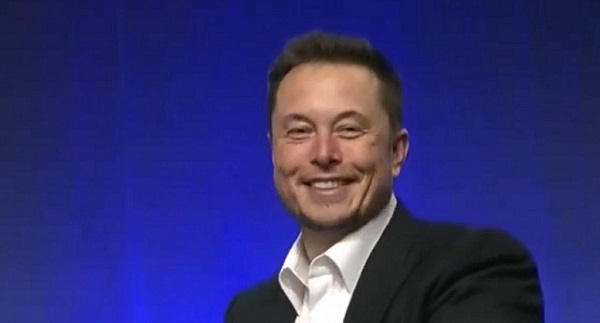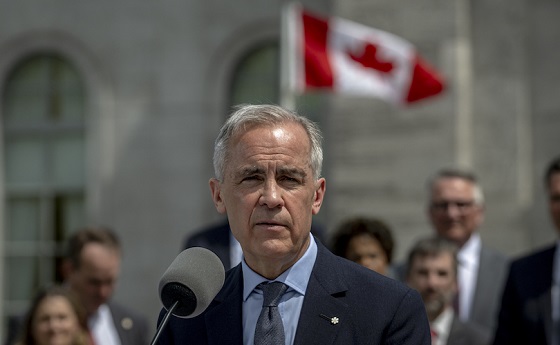Business
The NSA’s Secret Sex Chats

|
|
Intelligence officials maintained a chatroom to discuss polyamory and transgender surgeries, internal documents reveal.
The “intelligence community” is one of the most powerful parts of the American national security apparatus. In theory, it works tirelessly to keep the nation safe. But according to internal documents that we obtained, some intelligence agency employees have another on-the-job priority: sex chats.
We have cultivated sources within the National Security Agency—one current employee and one former employee—who have provided chat logs from the NSA’s Intelink messaging program. According to an NSA press official, “All NSA employees sign agreements stating that publishing non-mission related material on Intelink is a usage violation and will result in disciplinary action.” Nonetheless, these logs, dating back two years, are lurid, featuring wide-ranging discussions of sex, kink, polyamory, and castration.
One popular chat topic was male-to-female transgender surgery, which involves surgically removing the penis and turning it into an artificial vagina. “[M]ine is everything,” said one male who claimed to have had gender reconstruction surgery. “[I]’ve found that i like being penetrated (never liked it before GRS), but all the rest is just as important as well.” Another intelligence official boasted that genital surgery allowed him “to wear leggings or bikinis without having to wear a gaff under it.”
These employees discussed hair removal, estrogen injections, and the experience of sexual pleasure post-castration. “[G]etting my butthole zapped by a laser was . . . shocking,” said one transgender-identifying intel employee who spent thousands on hair removal. “Look, I just enjoy helping other people experience boobs,” said another about estrogen treatments. “[O]ne of the weirdest things that gives me euphoria is when i pee, i don’t have to push anything down to make sure it aims right,” a Defense Intelligence Agency employee added.
These revelations come at a moment of heightened scrutiny for the intelligence community. President Donald Trump, Defense Secretary Pete Hegseth, and Director of National Intelligence Tulsi Gabbard have each made the case that the intelligence agencies have gone “woke,” prioritizing left-wing activism over national security. These chat logs confirm their suspicions and raise fundamental questions about competence and professionalism.
According to our sources, the sex chats were legitimized as part of the NSA’s commitment to “diversity, equity and inclusion.” Activists within the agency used LGBTQ+ “employee resource groups” to turn their kinks and pathologies into official work duties. According to the current NSA employee, these groups “spent all day” recruiting activists and holding meetings with titles such as “Privilege,” “Ally Awareness,” “Pride,” and “Transgender Community Inclusion.” And they did so with the full support of NSA leadership, which declared that DEI was “not only mission critical, but mission imperative.”
In this case, “diversity” was not a byword for racialism, but rather a euphemism for sex talk. Last January, chatroom members discussed their practice of polyamory, or “ethical non-monogamy.” “[A] polycule is a polyamorous group,” one employee explained. “A is my [girlfriend], and B-G are her partners. . . . then B&C are dating but not C&D, nor E, F, or G with any of the others, though there are several MWB (metas-with-benefits) connections.” Another employee claimed to be part of a nine-member “polycule,” adding that “some of our friends are practically poly-mers, with all the connected compounds.”
At other times, the conversations became explicit. The active source at the NSA claimed to have witnessed hundreds of sexually provocative discussions, which, he added, occurred mostly on taxpayer time. The former NSA source who was familiar with the chats recalled being “disgusted” by a particularly shocking thread discussing weekend “gangbangs.”
The NSA sources also raised the question of some staffers’ mental fitness for the job. In one chat, an NSA employee insists on using “it” pronouns in lieu of the human “he” or “she” pronouns. “[I]t/its user here. While I understand we can make some people uncomfortable, keep in mind that the dehumanizing aspect either a) doesn’t apply or b) is a positive effect when we’re requesting it.” A commenter who disagreed was quickly dismissed by employees of the NSA and CIA, who claimed that refusing to use “it/its” pronouns amounted to “erasing” a transgender identity.
“These are folks with top secret clearances believing they are an IT!” said the NSA source.
With the Trump administration taking over, we may see changes. The NSA source said that staffers involved in employee resource groups fear the end of DEI. “[T]here are legal restrictions in place, but this admin has shown they don’t give a f**k about legality,” a staffer in space intelligence remarked about DEI staffers being placed on leave. Others have expressed opposition to Trump’s cabinet nominees.
A conflict is coming. These NSA chat logs suggest the presence of at least hundreds of gender activists within the intelligence services who cannot distinguish between male and female, and who believe that discussing castration, polyamory, and “gangbangs” is an appropriate use of public resources. For psychological and ideological reasons, these kinds of people will not be easily sidelined. The Trump administration should not only dismantle the structure of DEI but also terminate the employees who use it to advance gender activism at the expense of national security.
 |
A guest post by
|
Subscribe to Christopher F. Rufo.
For the full experience, upgrade your subscription.
Automotive
Elon Musk Poised To Become World’s First Trillionaire After Shareholder Vote


From the Daily Caller News Foundation
At Tesla’s Austin headquarters, investors backed Musk’s 12-step plan that ties his potential trillion-dollar payout to a series of aggressive financial and operational milestones, including raising the company’s valuation from roughly $1.4 trillion to $8.5 trillion and selling one million humanoid robots within a decade. Musk hailed the outcome as a turning point for Tesla’s future.
“What we’re about to embark upon is not merely a new chapter of the future of Tesla but a whole new book,” Musk said, as The New York Times reported.
Dear Readers:
As a nonprofit, we are dependent on the generosity of our readers.
Please consider making a small donation of any amount here.
Thank you!
The decision cements investor confidence in Musk’s “moonshot” management style and reinforces the belief that Tesla’s success depends heavily on its founder and his leadership.
Tesla Annual meeting starting now
https://t.co/j1KHf3k6ch— Elon Musk (@elonmusk) November 6, 2025
“Those who claim the plan is ‘too large’ ignore the scale of ambition that has historically defined Tesla’s trajectory,” the Florida State Board of Administration said in a securities filing describing why it voted for Mr. Musk’s pay plan. “A company that went from near bankruptcy to global leadership in E.V.s and clean energy under similar frameworks has earned the right to use incentive models that reward moonshot performance.”
Investors like Ark Invest CEO Cathie Wood defended Tesla’s decision, saying the plan aligns shareholder rewards with company performance.
“I do not understand why investors are voting against Elon’s pay package when they and their clients would benefit enormously if he and his incredible team meet such high goals,” Wood wrote on X.
Norway’s sovereign wealth fund, Norges Bank Investment Management — one of Tesla’s largest shareholders — broke ranks, however, and voted against the pay plan, saying that the package was excessive.
“While we appreciate the significant value created under Mr. Musk’s visionary role, we are concerned about the total size of the award, dilution, and lack of mitigation of key person risk,” the firm said.
The vote comes months after Musk wrapped up his short-lived government role under President Donald Trump. In February, Musk and his Department of Government Efficiency (DOGE) team sparked a firestorm when they announced plans to eliminate the U.S. Agency for International Development, drawing backlash from Democrats and prompting protests targeting Musk and his companies, including Tesla.
Back in May, Musk announced that his “scheduled time” leading DOGE had ended.
Business
Carney’s Deficit Numbers Deserve Scrutiny After Trudeau’s Forecasting Failures

From the Frontier Centre for Public Policy
By Conrad Eder
Frontier Centre for Public Policy study reveals a decade of inflated Liberal forecasts—a track record that casts a long shadow over Carney’s first budget
The Frontier Centre for Public Policy has released a major new study revealing that the Trudeau government’s federal budget forecasts from 2016 to 2025 were consistently inaccurate and biased — a record that casts serious doubt on the projections in Prime Minister Mark Carney’s first budget.
Carney’s 2025–26 federal budget forecasts a $78.3-billion deficit — twice the size projected last year and four times what was forecast in Budget 2022. But if recent history is any guide, Canadians have good reason to question whether even this ballooning deficit reflects fiscal reality.
The 4,000-word study, Measuring Federal Budgetary Balance Forecasting Accuracy and Bias, by Frontier Centre policy analyst Conrad Eder, finds that forecast accuracy collapsed after the Trudeau government took office:
- Current-year forecasts were off by an average of $22.9 billion, or one per cent of GDP.
- Four-year forecasts missed the mark by an average of $94.4 billion, or four per cent of GDP.
- Long-term projections consistently overstated Canada’s fiscal health, showing a clear optimism bias.
Eder’s analysis shows that every three- and four-year forecast under Trudeau predicted a stronger financial position than what actually occurred, masking the true scale of deficits and debt accumulation. The study concludes that this reflects a systemic optimism bias, likely rooted in political incentives: short-term optics with no regard to long-term consequences.
“With Prime Minister Carney now setting Canada’s fiscal direction, it’s critical to assess his projections in light of this track record,” said Eder. “The pattern of bias and inaccuracy under previous Liberal governments gives reason to doubt the credibility of claims that deficits will shrink over time. Canadians deserve fiscal forecasts that are credible and transparent — not political messaging disguised as economic planning.”
The study warns that persistent optimism bias erodes fiscal accountability, weakens public trust and limits citizens’ ability to hold government to account — a threat to both economic sustainability and democratic transparency.
-

 Justice2 days ago
Justice2 days agoCarney government lets Supreme Court decision stand despite outrage over child porn ruling
-

 Daily Caller2 days ago
Daily Caller2 days agoUS Eating Canada’s Lunch While Liberals Stall – Trump Admin Announces Record-Shattering Energy Report
-

 Business2 days ago
Business2 days agoCarney’s budget spares tax status of Canadian churches, pro-life groups after backlash
-

 COVID-192 days ago
COVID-192 days agoFreedom Convoy leader Tamara Lich to appeal her recent conviction
-

 Daily Caller1 day ago
Daily Caller1 day agoUN Chief Rages Against Dying Of Climate Alarm Light
-

 Energy2 days ago
Energy2 days agoEby should put up, shut up, or pay up
-

 Business2 days ago
Business2 days agoThe Liberal budget is a massive FAILURE: Former Liberal Cabinet Member Dan McTeague
-

 Business17 hours ago
Business17 hours agoCarney budget continues misguided ‘Build Canada Homes’ approach












